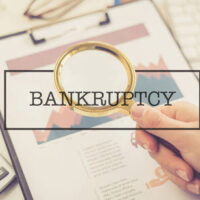Starting A New Business After Filing For Bankruptcy

Owning their own business is a lifetime dream for many people but numerous factors can undermine your success, causing your business to fail. If you filed business bankruptcy previously, it does not mean the end of your dream. Starting a new business after filing for bankruptcy is possible but there are potential issues you need to be aware of.
Important Issues To Address When Starting A New Business After Bankruptcy
According to the Bureau of Labor Statistics (BLS), 20 percent of small businesses fail each year. The rate jumps to 30 percent by the end of the second year and by the fifth year, up to half of all new businesses end up closing their doors.
Filing a Chapter 11 bankruptcy allows you to reorganize assets and debts, potentially salvaging your business. If shutting down your business is the best option, a Chapter 7 bankruptcy can help liquidate assets and eliminate debts. Once you take this step, it does not prevent you from starting another business in the future. However, there are four important issues you need to address:
1. Potential problems in obtaining credit.
While rebuilding credit after bankruptcy can be accomplished quicker than most people think, this could be an issue when trying to launch a new business. You may want to seek alternative financing or investments from family, friends, or former associates. Working as a subcontractor or independent contractor can also help you save money for a new business launch.
- Keeping personal and business accounts separate.
If you own a business as a sole proprietor, filing a Chapter 7 bankruptcy can reduce personal liability. With new ventures after bankruptcy, take additional precautions to keep personal and business financial accounts separate, such as establishing a corporation or a limited liability company (LLC).
- Addressing similarities between your old and new business.
If your new business is too similar to the one in which you filed for bankruptcy, it could raise suspicions of bankruptcy fraud while opening you up to collections actions from old creditors. Your best option is to take steps to ensure your new business is an entirely new concept and venture.
- Paying past tax debts.
When starting a new business, you need to get new employer tax identification numbers. You cannot use the ones from your former business. However, you are still required to pay any outstanding tax debts that were not eliminated through your bankruptcy proceedings. You will also want to pay close attention to current tax debts. Staying up to date on these can help you avoid future financial problems that could cause your new business to fail.
Let Us Help You Today
Do you have questions about bankruptcy and how it could impact your prospects for starting a new business venture in the future? Reach out to the Law Office of Harry D. Lewis. Give us a call or contact our New York City business bankruptcy attorney online and request a consultation today.
